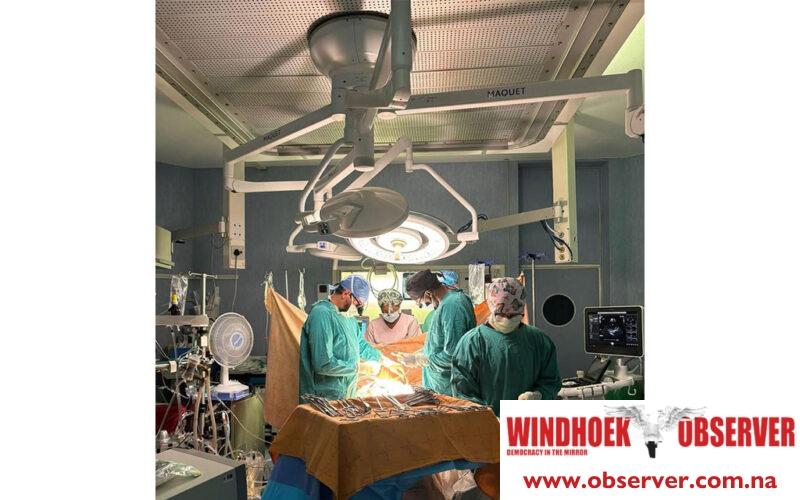Ester Mbathera
Namibia has a high number of congenital heart disease (CHD) cases, exceeding the global average of one in 100 births.
Windhoek Central Hospital sees about 2 000 patients with heart defects each year.
Many children need early diagnosis and treatment, but access to specialised care remains limited.
This is according to Dr Fenny Shidhika, a paediatric cardiologist at the Windhoek Central Hospital, as the world observes Congenital Heart Disease Awareness Week, which started from 7 to 14 February.
“The incidence has a direct linear relationship with an increasing birth rate and prevalence, with population density across different regions,” she said.
Heart Month is observed to recognise children born with cardiac irregularities and highlight the treatments and advancements that have allowed these babies to survive and thrive.
According to Shidhika, late diagnosis increases health risks and leads to more complicated procedures.
Some heart conditions require urgent treatment, and delays can result in severe complications.
“Early detection is quintessentially critical in congenital heart disease. Some lesions are time-sensitive, and delayed intervention with advanced physiology adds inevitable risk when patients eventually present for interventions. This results in far more pronounced odds of morbidity and sometimes mortality,” she said.
Shidhika said a national electronic registry is being developed to track congenital heart disease cases.
“We are busy designing a model that will be able to predict the overall incidence and prevalence of CHD in the country from the currently living electronic registry. The preliminary data should be available by June 2025. This data will feed the national policy for CHD, as well as aid in allocating resources for this patient population,” she said.
To manage heart conditions, Windhoek Central Hospital has an echocardiogram stationed at its surgical theatre and Cardiac ICU.
Two portable Philips CX50 machines serve neonatal ICUs, outpatient clinics, and satellite hospitals.
Shidhika said the public health service needs a high-resolution echocardiogram machine, the GE E95 Ultra.
“This is a very high-resolution machine, and it is to be stationed in the outpatient clinic and to be used for pre-procedural screening before the patients undergo definitive and/or staged/palliative procedures,” she said.
She explained that high-resolution equipment improves diagnostic accuracy and helps design tailored treatment plans.
“We have integrated more software for comprehensive functional appraisal, as well as 4-dimensional imaging as well as the contemporary artificial intelligence algorithms in the new machine,” she said.
The machine costs N$2.1 million.
The Namibia National Children Hearts Trust has already paid N$1.35 million, with most of the funds coming from FirstRand and Capricorn Foundation.
The manufacturers provided a discount, and NamRA granted a VAT exemption.
However, the trust still needs N$879 847 to cover the remaining cost.
“We are appealing to individuals and businesses to support us in acquiring this magnificent technological equipment,” he said.
The plan is to acquire the machine this month.
Meanwhile, volunteer surgeon Dr Mohamed Nassar from the United Kingdom, along with Dr Shidhika and Dr Alfred Mureko, has already performed life-saving open-heart surgery on nine children this month.




